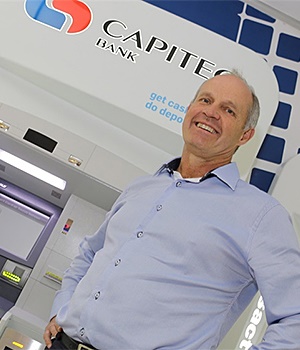
A listing on the JSE of African Bank is the most likely way that the SA Reserve Bank will ultimately exit its 50% stake in the bank, while an outright sale of the interest is a less likely method.
The Reserve Bank recently announced that it might sell its 50% shareholding in African Bank during the next year or two.
African Bank went bankrupt in August 2014. It was later recapitalised to the tune of R10 billion and relaunched in April 2016 with the Reserve Bank and the Public Investment Corporation (PIC), as well as six banks, taking stakes in the company.
The PIC has a 25% stake while a consortium of six banks – Absa, Capitec, FirstRand, Investec, Nedbank and Standard Bank – together hold a 25% stake in African Bank.
Capitec CEO Gerrie Fourie, said that the bank’s shareholding in African Bank was the result of an industry initiative to restructure the bank, and not an investment strategy.
“It is our intention to systematically decrease our shareholding over time, in a responsible manner, along with other banks.”
Ross Linstrom, a Standard Bank spokesperson, said that “It is premature to comment on possible future exit processes at this stage.”
An Absa spokesperson said that the bank could not
comment due to confidentiality obligations.
A banking analyst, who wished to remain anonymous, said that if the Reserve Bank were to sell its stake in African Bank, it could make investors more hesitant of investing in the bank because of the loss of association with the stature of the Reserve Bank and the fact that it is the bank’s lead investor.
The only bank that might be interested in African Bank is Capitec, as there was an overall overlap between the two bank’s customers, but it had just bought Mercantile Bank, the analyst said.
ECONOMIC CONDITIONS
Among the biggest reasons investors might shy away from buying into African Bank are the tough economic conditions and the client base that the bank is exposed to.
The most likely entity that could increase its stake would be the PIC, the analyst continued.
Investors would remain wary of African Bank, given that it hadn’t proved its new model. In the past it had largely focused on microlending but it had now added transactional banking and retail deposits were growing swiftly.
A second banking analyst said that there wasn’t a great deal of appetite for significant stakes in local banks, as reflected by the way Barclays had cut its stake in Absa and Old Mutual had reduced its interest in Nedbank.
Barclays bought a majority stake in Absa in 2005, but reduced its holding last year from 62% to 15% by selling shares to large investors.
There wasn’t any single shareholder that bought the stake that Old Mutual had wanted to sell in Nedbank. So Old Mutual reduced its stake in Nedbank from 52% to a 19.9% minority stake by distributing the extra Nedbank shares to Old Mutual shareholders.
INVESTABLE PROSPECT
The banking analyst said that African Bank was starting to building up a track record and looked like a better investable prospect, especially considering its growing base of retail deposits.
“The growth in retail deposits is very strong and is ticking up nicely,” the banking analyst said.
One of the goals of African Bank is to increase its return of equity from 11% to 15%.
The analyst added that if African Bank were to list, it should definitely first increase its return of equity to 15%.
This could be done by reducing the amount of cash that the bank held and increasing its debt.
Right now, the only reason why one of the six banks invested in African Bank would increase its stake, would be to head off a potential competitor, the analyst explained.
A third analyst, who wished to remain anonymous, said that any future sale of the Reserve Bank’s stake would depend on the price for such a sale.
“The valuation of African Bank would need to be very competitive,” the analyst commented, and added that while African Bank had been relaunched to some extent, its history could dog any sale of it.
Given that most of African Bank’s existing shareholders weren’t long-term investors and that most of them would want to sell, this could depress any selling price achieved for any sale.
“I don’t think the sale of the stake is imminent,” the analyst said.
 |
| ||||||||||||
| |||||||||||||




 Publications
Publications
 Partners
Partners








